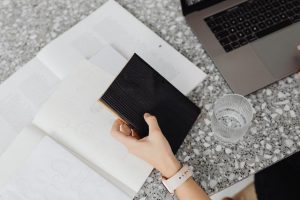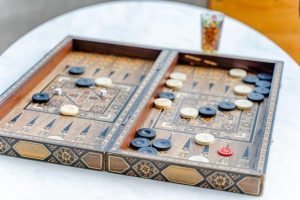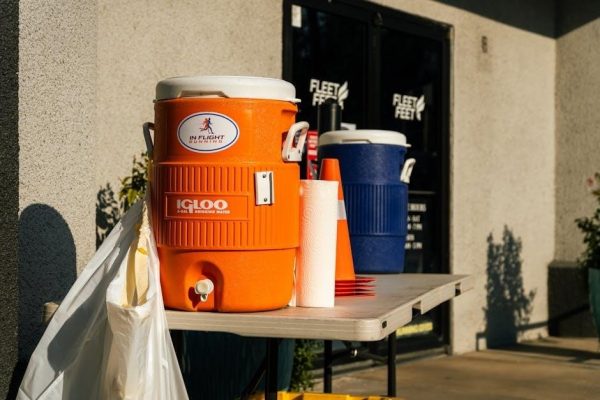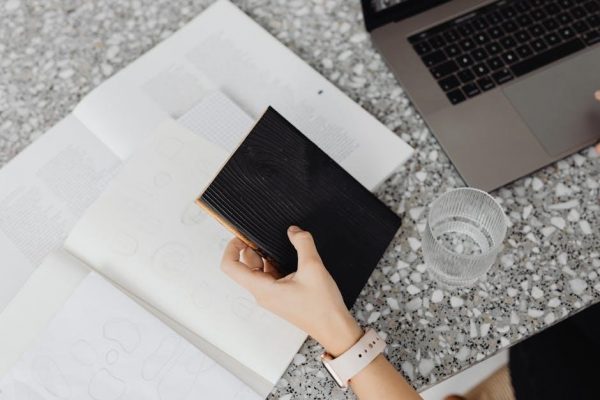Aphasia activities for adults focus on improving communication skills through structured exercises. These include naming therapy, cognitive tasks, AAC tools, and social interaction. Downloadable PDF resources like workbooks and guides provide practical approaches to rehabilitation, offering strategies for word retrieval, conversation support, and daily functional communication. These materials are designed to be engaging and adaptable, helping individuals regain confidence and independence in their language abilities.

Naming Therapy Activities
Naming therapy involves exercises like describing words, using games such as Articulate or Taboo, and practicing word-finding strategies. These activities stimulate language recall and improve communication skills effectively.
Describe a Word
Describing a word is a foundational naming therapy activity that helps individuals with aphasia improve word retrieval and language processing. By focusing on definitions, attributes, or examples, participants enhance their ability to express thoughts clearly. This exercise can be adapted using visual aids like pictures or written prompts, making it accessible and engaging. It is often included in aphasia workbooks and PDF resources, providing structured practice for daily communication challenges.
Commercial Games (e.g., Articulate or Taboo)
Commercial games like Articulate and Taboo are engaging tools for aphasia therapy, promoting word retrieval and social interaction. These games encourage descriptive language, teamwork, and time management, making therapy dynamic and enjoyable. They are often recommended in aphasia workbooks and PDF guides as effective ways to practice communication skills in a motivating and collaborative setting, fostering confidence and fluency in adults with aphasia.
Word Finding Strategies
Word finding strategies are essential for adults with aphasia, helping them overcome language retrieval challenges. Techniques include describing words, using synonyms, opposites, or categories, and focusing on first letters or sounds. Gestures and visual aids also aid retrieval. These methods, often detailed in aphasia workbooks and PDF guides, enhance vocabulary access and boost confidence in communication, making them a cornerstone of effective language rehabilitation programs.
Cognitive Exercises for Aphasia
Cognitive exercises for aphasia focus on memory and problem-solving tasks. Activities like word searches, puzzles, and category sorting enhance language recall. Workbooks and PDF guides provide structured tools to improve mental processing and daily functional communication, aiding adults in regaining cognitive and linguistic abilities effectively.
Memory Activities
Memory activities for aphasia focus on improving recall and retention through structured exercises. Techniques include picture matching, category sorting, and “I Spy” games. Word searches and crossword puzzles stimulate language recall. Workbooks and PDF guides offer practical tools, such as listing items from memory or describing past events. These activities enhance cognitive function and provide a foundation for rebuilding communication skills in adults with aphasia.
Problem-Solving Tasks
Problem-solving tasks for aphasia involve activities that enhance critical thinking and adaptability. Examples include sequencing images, categorizing objects, and completing puzzles. These exercises help individuals with aphasia improve their ability to process information and make decisions. Practical scenarios, like planning daily routines or solving real-life dilemmas, are also used to promote functional communication and independence. Such tasks are often included in aphasia workbooks and PDF guides for adults.

Augmentative and Alternative Communication (AAC)
AAC devices and strategies enhance communication for adults with aphasia, offering alternative methods to express thoughts. Tools like dedicated AAC devices or smartphone apps provide visual and auditory support, aiding language retrieval and expression through pre-recorded messages, symbols, or text-to-speech features. Workbooks and PDF guides often include AAC exercises to improve functional communication skills in daily interactions.
Dedicated AAC Devices
Dedicated AAC devices are specialized tools designed to support individuals with aphasia. These devices often feature pre-recorded messages, symbols, or text-to-speech capabilities, enabling users to communicate effectively. They can be programmed with frequently used phrases or personalized vocabulary, making them highly adaptable to individual needs. Many aphasia workbooks and PDF guides recommend these devices as part of a comprehensive communication strategy, enhancing both expressive and receptive language skills in adults.
Non-Dedicated Tools (e.g., Smartphones)
Smartphones and tablets are versatile non-dedicated tools for aphasia support. Apps like speech-to-text and text-to-speech tools enable individuals to communicate effectively. Many aphasia PDF guides highlight these devices’ accessibility, offering features such as customizable keyboards and visual aids. They are cost-effective and widely available, making them ideal for daily communication needs and therapeutic exercises, fostering independence and confidence in adults with aphasia.
Group Activities for Social Interaction
Group activities foster social engagement and communication for adults with aphasia. Support groups and shared hobbies provide platforms for interaction, building confidence and reducing isolation through collaborative efforts.
Support Groups
Support groups provide a sense of community for adults with aphasia, reducing feelings of isolation. These groups allow individuals to share experiences, receive emotional support, and participate in activities that foster communication. They often include conversation practice, shared hobbies, and mutual encouragement, empowering participants to rebuild confidence and connection. Support groups play a vital role in the rehabilitation journey, offering a safe space for social interaction and personal growth.
Shared Hobbies and Interests
Engaging in shared hobbies and interests helps adults with aphasia connect with others while fostering communication. Activities like art, music, or cooking provide meaningful contexts for interaction. These pursuits encourage natural language use, building confidence and social bonds. By focusing on common interests, individuals can participate fully, enhancing their rehabilitation and overall well-being through enjoyable and purposeful experiences.
Word Finding Strategies
Word finding strategies help adults with aphasia retrieve and use words effectively. Techniques include describing words, using commercial games like Taboo, incorporating gestures, and categorizing objects to stimulate language retrieval and confidence.
Semantic Tasks
Semantic tasks focus on word meaning and categorization to aid word retrieval. Activities include identifying categories, describing attributes, and creating associations. For example, naming animals or describing uses of objects. These exercises improve word-finding abilities by strengthening connections between words and their meanings. Workbooks like the Aphasia Therapy Workbook and digital tools provide structured semantic exercises to enhance language recovery and cognitive skills.
Phonological Cueing
Phonological cueing involves using sounds or syllables to prompt word retrieval. For example, saying the first sound of a word to help individuals with aphasia recall it. This technique leverages the brain’s phonological memory, making it easier to access words. Activities include repetition, rhyme games, and sound-based exercises. Tools like workbooks and apps provide structured phonological exercises to improve word-finding skills and enhance communication confidence.

Emotional and Psychological Support
Emotional and psychological support is crucial for adults with aphasia, addressing challenges like depression and low confidence. Counseling and accessible communication tools help reduce stress and foster independence.
Addressing Depression
Depression often accompanies aphasia, impacting recovery and quality of life.Tailored counseling and accessible communication tools can reduce stress and isolation.Support groups provide emotional connection, while progress monitoring helps adjust therapy strategies to improve mental well-being and confidence.
Building Confidence
Building confidence is crucial for adults with aphasia. Structured activities like naming exercises and group interactions foster self-esteem. Positive reinforcement and achievable goals encourage progress, reducing anxiety. Functional phrases and social hobbies provide real-life application, helping individuals regain independence and confidence in their communication abilities.
Creating Aphasia-Friendly Materials
Aphasia-friendly materials simplify text and use visuals for clarity. Workbooks like the WALC series and modifiable PDF templates help create accessible documents, aiding communication and independence.
Accessible Documents
Creating aphasia-friendly documents involves simplifying text and incorporating visuals. UNC graduate students design materials with clear fonts, images, and short sentences. These documents, often in PDF format, are modified to improve readability. They include picture prompts and open-ended questions to support conversation. Such resources are essential for therapy, daily activities, and fostering independence, ensuring individuals with aphasia can engage effectively with written content.
Conversation Support
Conversation support strategies for aphasia include using visual aids, simplified language, and open-ended questions. Functional phrases, like those on fridge cards, help individuals practice common expressions for social situations. Picture prompts and accessible documents, created by UNC graduate students, foster autonomy and engagement. These tools reduce loneliness and build confidence, enabling meaningful interactions and promoting communication skills in daily life and therapy sessions.

Progress Monitoring and Therapy Adjustments
Track improvement through worksheets and visual aids, adapting activities based on progress. Regular feedback and adjustments ensure personalized therapy, maximizing recovery and communication skills in adults with aphasia.
Tracking Improvement
Tracking progress in aphasia therapy involves using worksheets, visual aids, and goal-setting templates. Regular assessments help monitor improvements in language skills, allowing for timely adjustments to activities. Feedback from clinicians and self-assessment tools empower adults to gauge their advancement. This structured approach ensures personalized therapy, maximizing recovery and communication skills. Consistent tracking motivates individuals, celebrating small victories and guiding further rehabilitation efforts effectively.
Adapting Activities
Adapting aphasia activities involves tailoring exercises to individual needs and progress. Worksheets and materials can be simplified or enhanced based on performance. For example, adding visuals or reducing complexity helps ensure accessibility. Incorporating technology, like AAC devices or apps, further personalizes therapy. Regular adjustments keep activities engaging and effective, fostering continuous improvement in communication skills. This flexible approach ensures therapy remains relevant and impactful for adults with aphasia.
Case Studies and Research
Case studies highlight aphasia recovery progress, while research provides insights into effective treatment methods. Success stories and recent findings guide clinicians in improving communication skills for adults with aphasia.
Success Stories
Success stories highlight individuals overcoming aphasia through tailored activities. Many adults regain communication skills using workbooks like the Aphasia Therapy Workbook and WALC series. Functional phrases and group activities foster confidence and reduce loneliness. These stories inspire hope, showing recovery is possible with consistent practice and support. They demonstrate the effectiveness of structured exercises in improving daily communication and overall quality of life for those with aphasia.
Recent Research Findings
Recent research highlights advancements in aphasia rehabilitation, emphasizing the effectiveness of structured activities. Studies from 2023 reveal improved language recovery through tailored AAC tools and digital exercises. These findings underscore the importance of combining speech therapy with technology for better outcomes. Adults with aphasia show significant progress in word retrieval and sentence formulation when engaging in consistent, evidence-based practices, fostering greater independence and communication confidence.
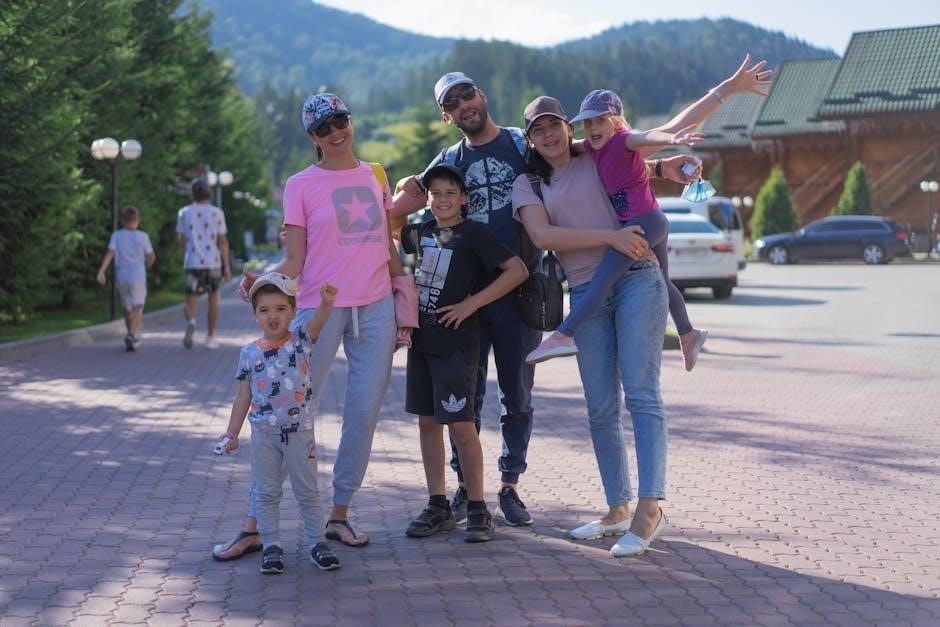
Resources and References
Recommended workbooks include the Aphasia Therapy Workbook and WALC series. Online tools like Apraxia Therapy apps and accessible PDF materials offer additional support. Explore resources like the Fridge Functional Phrases and 50 Things e-book for comprehensive guidance.
Recommended Workbooks
Recommended workbooks for aphasia include the Aphasia Therapy Workbook by Julie Guerrero, offering comprehensive exercises for receptive and expressive language. The WALC series provides targeted activities for word finding, memory, and verbal reasoning. Functional workbooks like Workbook of Activities for Language and Cognition focus on practical communication skills. These resources are ideal for clinicians and families, providing structured, adaptable approaches to aid recovery and daily communication.
Online Tools and Apps
Online tools and apps, such as the Apraxia Therapy app, offer interactive exercises for aphasia rehabilitation. Features include flashcards, video modeling, and audio playback to aid word retrieval and speech practice. Apps like Just for Adults provide activities tailored to improve communication skills. These digital resources are accessible, engaging, and can be used in conjunction with traditional workbooks for comprehensive therapy. They also support remote practice, enhancing consistency in rehabilitation efforts.

